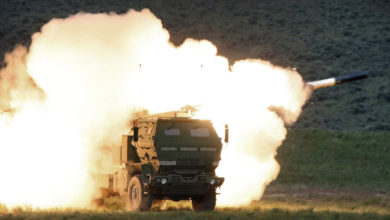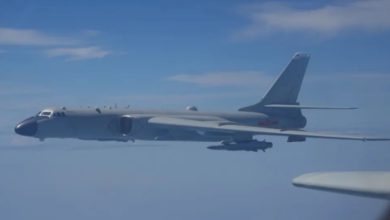G7 Leaders End Summit Pledging to Hurt Russia Economically

Leaders of the world’s wealthiest democracies struck a united stance to support Ukraine for “as long as it takes” as Russia’s invasion grinds on, and said they would explore far-reaching steps to cap Kremlin income from oil sales that are financing the war.
The final statement Tuesday from the Group of Seven summit in Germany underlined their intent to impose “severe and immediate economic costs” on Russia. It left out key details on how the fossil fuel price caps would work in practice, setting up more discussion in the weeks ahead to “explore” measures to bar imports of Russian oil above a certain level.
This would impact a major Russian source of income, and in theory help to alleviate the rises in energy prices and the inflation that have plagued the global economy since the end of the war.
“We remain steadfast in our commitment to our unprecedented coordination on sanctions for as long as necessary, acting in unison at every stage,” the leaders said.
Learn more The 2022 G7 Summit: What You Need to Know
They also reached an agreement to ban the import of Russian gold from the market and increase assistance to nations affected by food shortages caused by the Black Sea Blockade.
This price cap could in theory prevent service providers like shippers or insurance companies from dealing with oil that is priced higher than a set level. Because most of the service providers reside in Europe or the U.K., they could make it work. It would need to include as many countries as possible in order for it to be successful, especially India where oil refiners are buying up cheaper Russian oil than is allowed by Western traders. The details of how the proposal would work were not disclosed. They will be discussed in future weeks.
Before the summit’s close, leaders joined in condemning what they called the “abominable” Russian attack on a shopping mall in the town of Kremechuk, calling it a war crime and vowing that President Vladimir Putin and others involved “will be held to account.”
The leaders of the U.S., Germany, France, Italy, the U.K., Canada and Japan on Monday pledged to support Ukraine “for as long as it takes” after conferring by video link with Ukrainian President Volodymyr Zelenskyy.
The summit host, German Chancellor Olaf Scholz, said he “once again very emphatically set out the situation as Ukraine currently sees it.” Zelenskyy’s address came hours before Ukrainian officials reported a deadly Russian missile strike on a crowded shopping mall in the central city of Kremenchuk.
From the secluded Schloss Elmau hotel in the Bavarian Alps, the G7 leaders will move to Madrid for a summit of NATO leaders, where fallout from Russia’s invasion of Ukraine will again dominate the agenda. Japan has invited Fumio Kinida (Japan’s prime minister) to Madrid.
Zelenskyy openly expressed concerns that the West may be becoming exhausted by rising costs of wars that are contributing to high energy costs and higher prices for vital goods. These concerns have been addressed by the G7.
While the group’s annual gathering has been dominated by Ukraine and by the war’s knock-on effects, such as the challenge to food supplies in parts of the world caused by the interruption of Ukrainian grain exports, Scholz has been keen to show that the G7 also can move ahead on pre-war priorities.
Members of the Group of Seven major economies pledged Tuesday to create a new ‘climate club’ for nations that want to take more ambitious action to tackle global warming.
Scholz is the champion of the initiative. This will result in countries joining the club agreeing to tougher greenhouse gas emission reductions with the goal of keeping the global temperatures below 1.5 Celsius (2.7 Fahrenheit).
Countries that are part of the club will try to harmonize their measures in such a way that they are comparable and avoid members imposing climate-related tariffs on each others’ imports.
Speaking at the end of the three-day summit in Elmau, Germany, Scholz said the aim was to “ensure that protecting the climate is a competitive advantage, not a disadvantage.”
He indicated that the details for the proposed climate club will be finalized in this year.
Here are more must-read stories from TIME





